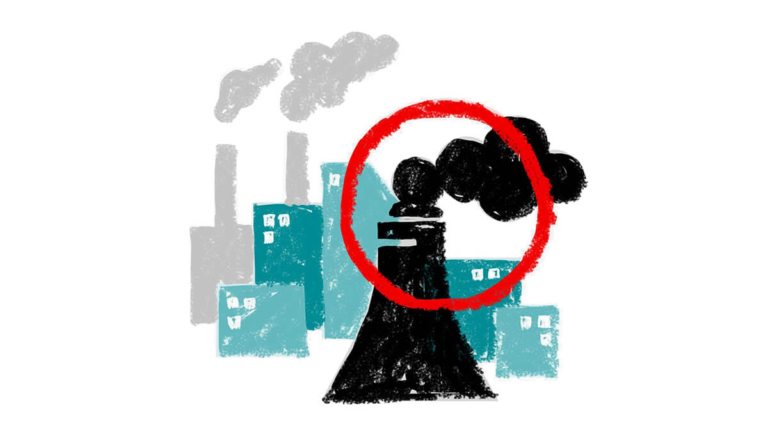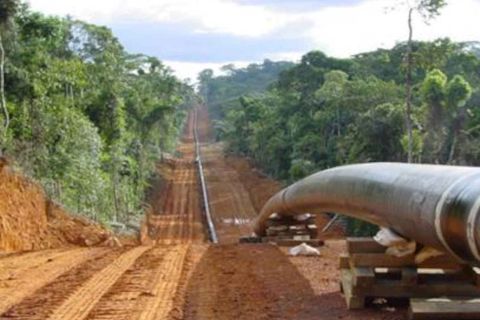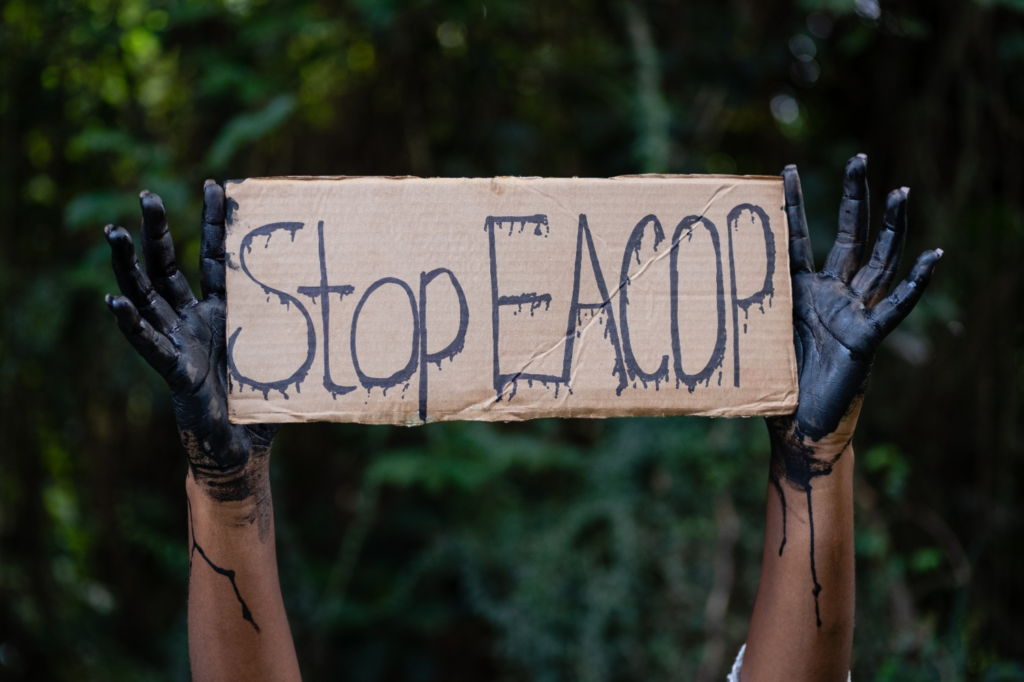Casebook Info
A controversial new crude oil pipeline – the East African Crude Oil Pipeline (“EACOP”) – is slated to carry oil from Uganda to Tanzania for export to the international market. This pipeline is being built at precisely the time when we need – now more than ever – to keep fossil fuels in the ground. In order to prevent the additional greenhouse gas emissions that would result from this project and the host of other human rights harms it would generate, a group of African NGOs have filed a complaint against Uganda, Tanzania, and the East African Community in the East African Court of Justice. In the complaint, the plaintiffs argue, among other things, that the respondent governments’ approval of the pipeline project fails to comply with environmental and social assessment requirements and that the project itself would violate the human rights of local communities. The case is currently pending before the Court.
- Year Filed 20202
- Year of Most Recent Ruling N/A
- Year of Final Ruling N/A
- Jurisdiction East Africa (regional)
- Court Name East African Court of Justice
- Primary Focus Mitigation
- Ruling On N/A
- Plaintiff(s) NGOs [Center for Food and Adequate Living Rights; Africa Institute for Energy Governance; Natural Justice Kenya; Center for Strategic Litigation]
- Respondent(s) Uganda (represented by the Attorney General of Uganda); Tanzania (represented by the Attorney General of Tanzania); East African Community (represented by the Secretary General of the East African Community)
- Outcome Pending
- Organizational leader of the litigation Natural Justice
Background
For years, a controversial new crude oil pipeline – the East African Crude Oil Pipeline (“EACOP”) – has been slated to pass from Uganda to Tanzania. Led by several oil companies and developers, the pipeline would carry oil from Uganda to Tanzania for export on the international market, leaving in its wake a variety of environmental, social, and human rights harms.
“The EACOP project is a great risk to humanity”
Complaint
Four African organizations – two from Uganda, another from Tanzania, and the other from Kenya – filed a complaint with the East African Court of Justice in November 2020. Fueled by concerns regarding the climate, environmental, and human rights impacts of the proposed oil pipeline, the plaintiffs hope to delay the project and push it to comply with its environmental and human rights obligations, if not stop the project altogether.
The plaintiffs take a broad and inclusive approach to laying out the grounds supporting their complaint. They draw from environmental, administrative, constitutional, and human rights law to argue that the respondents failed to satisfy their legal obligations and that the pipeline itself would violate the law given its likely environmental and social consequences.
The plaintiffs allege, among other claims, that:
- The necessary social and environmental impact assessments weren’t submitted and/or approved prior to the respondent governments’ signing of agreements to facilitate the construction of the pipeline.
- The Ugandan and Tanzanian governments failed to sufficiently consider the human rights, food security, and environmental impacts of the pipeline and failed to undertake, facilitate, or ensure adequate or meaningful community participation in the decision to approve the pipeline construction.
- The East African Community, as represented by the Secretary General, failed to undertake the necessary investigation of the matter despite its obligation to do so given the pipeline’s likely effect on the Community.
- The pipeline project itself is “environmentally untenable,” cuts through ecologically sensitive and protected areas, and would unduly harm livelihoods, food security, human rights, and public health as well as have substantial climate and biodiversity impacts.
“[T]he project is environmentally untenable and will traverse protected areas in East Africa with undue regard to the livelihoods, gender, food security, public health, biodiversity and climate change impacts.”
Complaint
The treaties, constitutions, and laws that serve as the basis for the plaintiffs’ claims include:
- The Universal Declaration of Human Rights;
- The International Covenant on Economic, Social and Cultural Rights;
- The International Covenant on Civil and Political Rights;
- The Convention on the Rights of the Child;
- The International Convention on the Protection of the Rights of All Migrant Workers and Members of Their Families;
- The Convention on Biological Diversity;
- The UN Framework Convention on Climate Change;
- The East African Treaty;
- The Protocol for the Sustainable Development of Lake Victoria Basin;
- The Protocol on Environment and Natural Resource Management;
- The African Charter on Human and Peoples’ Rights;
- The African Convention on Conservation of Natural Resources;
- The East African Community guidelines on transboundary projects;
- The Constitution of Tanzania;
- The Constitution of Uganda;
- Ugandan domestic environmental law.
“[T]he EACOP Project is . . . inconsistent with the Respondent’s commitments under UN Declarations in so far as it does not provide or consider the right of Peasants and other people working in rural areas to adequate food, adequate nutrition and the fundamental right to be free from hunger, as the project will permanently take away all livelihood and social cohesion tools and pathways to produce food which guarantee the possibility of enjoying the highest degree of physical, emotional and intellectual development for peasants.”
Complaint
The plaintiffs have asked the Court to declare that the respondents violated applicable laws and regulations by signing various agreements to facilitate the project and that the construction of the pipeline itself, as designed, would violate applicable treaties and laws. They have also asked the Court to order the government respondents, if they wish to proceed with the project, to comply with applicable national and international law in addition to asking the Court to order the government respondents to undertake climate change and human rights impact assessments and ensure meaningful community and public participation in the development of similar projects. Furthermore, the plaintiffs have asked the Court to issue an injunction preventing the respondents from constructing the pipeline through protected areas. Finally, the plaintiffs are also seeking a court order requiring the respondents to compensate all individuals who have already suffered losses due to the restrictions placed on the use of their land by the pipeline developer.
As the complaint makes its way through the judicial process, concerns abound regarding the safety and security of communities on the ground that oppose the construction of the pipeline. Other communities and their members have already agreed to give up their land (to be used in the pipeline construction) in exchange for payment, and many fear that they won’t ultimately be paid what they were promised.
It is now common knowledge that keeping the average global temperature increase to well below two degrees Celsius will require ending the development of new fossil fuel infrastructure – like pipelines – as well as discontinuing the use of infrastructure already in service. This case recognizes the importance of stopping fossil fuel infrastructure before it’s built and before it comes into service. Doing so prevents the continued use of fossil fuels out of inertia and in an attempt to recoup the costs associated with building the infrastructure.
If successful, this case could help light the path forward for people around the world looking to put an end to the development of fossil fuel infrastructure, which is essential to truly tackling the climate emergency.
- Environmentally untenable How the plaintiffs describe the EACOP project
- 1,443 km The length of the proposed East African Crude Oil Pipeline
- 216 thousand barrels per day (kbd) Export flow rate barrels per day at plateau production
- 3.5 billion USD The amount of US dollars invested in the project
Strategies
Utilizing a variety of legal arguments to increase the likelihood that one such argument will succeed in front of the court

The plaintiffs in this case do not limit themselves to one type of argument – administrative, constitutional, human rights, or statutory – in their complaint. They invoke a variety of different legal arguments – including administrative, statutory, environmental, constitutional, and human rights arguments – as the bases of their complaint. In doing so, they give the Court a range of options from which to choose. This may increase the likelihood of a favorable response from the Court, as a judge who is less inclined, for example, to halt a project on the basis of a constitutional argument may be willing to do so on the basis of an administrative argument or vice versa.
Challenging a fossil fuel project

This case challenges a fossil fuel project (an oil pipeline), targeting both its direct and indirect impacts. The direct impacts of the pipeline include, for example, the destruction of ecologically sensitive areas. And the indirect impacts include, for example, the greenhouse gas emissions that will result from the burning of the oil produced by the pipeline. In doing so, it paints a clearer, more detailed, and ideally more persuasive picture of the substantial harms that will result from building the pipeline – and thus why it should be changed or halted.
Bringing the case in a more favorable venue / jurisdiction.

The pipeline is slated to be built through Uganda and Tanzania; yet, the complaint was filed with the East African Court of Justice. That was an intentional choice on the part of the plaintiffs, as litigating the case in a regional court – as opposed to national courts – increases the chance of a favorable opinion at least insofar as the case is more likely to be heard by more neutral judges.


